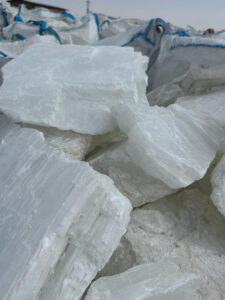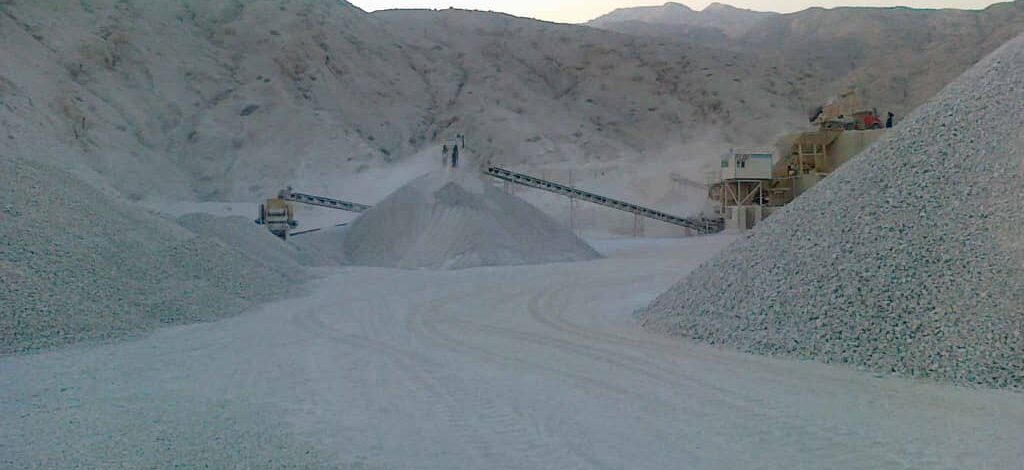A Growing Market for Quality Supplies
India’s demand for gypsum is steadily increasing, driven by the growth of its construction and agriculture sectors. Gypsum is a versatile material used in a wide range of applications, from building materials to soil conditioning. If you’re considering exporting gypsum to India, understanding the market, sourcing reliable suppliers, and navigating import regulations are key to a successful venture. This guide will help you understand the benefits and process of exporting gypsum to India.

Why Export Gypsum to India?
India is one of the fastest-growing economies in the world, with rapid urbanization and infrastructure development fueling the demand for building materials like gypsum. Here are a few reasons why exporting gypsum to India can be a lucrative opportunity:
-
Booming Construction Industry: India’s construction sector is booming, with a growing demand for gypsum in the production of plaster, drywall, and other building materials. Gypsum is an essential ingredient in creating strong, durable, and fire-resistant walls and ceilings.
-
Agricultural Benefits: Gypsum is also used in agriculture to improve soil quality, reduce salinity, and promote better crop yields. As India continues to expand its agricultural practices, the need for gypsum as a soil amendment is on the rise.
-
Environmental Sustainability: Gypsum is an environmentally friendly material, as it is non-toxic and can be recycled. This aligns with India’s growing focus on sustainable practices in both construction and agriculture.
-
Rising Demand for High-Quality Gypsum: As the demand for construction and agricultural products increases, there is a rising need for high-quality gypsum to meet the requirements of both sectors. Exporting premium gypsum products to India offers a competitive edge in a rapidly growing market.
Steps to Successfully Export Gypsum to India
Exporting gypsum to India requires careful planning, compliance with regulations, and establishing reliable partnerships with local distributors. Here’s a step-by-step guide to ensure success:
1. Research India’s Market and Demand
First, understanding India’s gypsum market is essential for determining your target audience. Research the specific industries that require gypsum, such as construction companies, plaster manufacturers, and agricultural suppliers. Additionally, identify key regions in India where gypsum demand is high, such as urban areas with ongoing infrastructure projects or regions with large-scale farming activities.
2. Find a Reliable Gypsum Supplier
Next, sourcing high-quality gypsum is critical when exporting to India. Work with reputable mining companies or suppliers who can consistently provide pure, high-quality gypsum that meets Indian standards. Ensure that the gypsum is free from impurities and adheres to specifications required for both construction and agricultural use. Moreover, request samples for testing and verify the supplier’s quality control processes before placing large orders.
3. Understand India’s Import Regulations
India has specific regulations for importing gypsum, so complying with them is essential to avoid delays or penalties. Some key requirements include:
-
Import Documentation: Ensure all necessary paperwork, such as an import/export license, certificate of origin, and bill of lading, is in place.
-
Customs Duties and Taxes: Be aware of the applicable customs duties, taxes, and tariffs for gypsum. Research the current rates and factor them into your pricing.
-
Packaging Standards: Gypsum should be properly packaged to prevent damage during transit and meet India’s packaging regulations.
-
Quality Certifications: India may require certain quality certifications, such as the Bureau of Indian Standards (BIS) certification, for construction-grade gypsum.
4. Develop a Strong Logistics and Shipping Plan
Reliable and timely delivery is crucial when exporting gypsum to India. Therefore, choose a trusted logistics partner with experience in shipping bulk materials to India. Ensure they can handle the necessary documentation, clear customs, and provide real-time tracking. Additionally, be mindful of packaging requirements to avoid product damage during transit.
5. Build Relationships with Indian Distributors
Finally, to successfully penetrate the Indian market, establish partnerships with local distributors or importers who are familiar with the domestic market. A strong distributor network will help you navigate local regulations, handle customs clearance, and reach your target customers efficiently.
The Incredible Benefits of Gypsum

